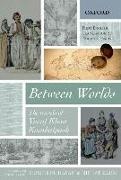Read more
This book is an edited and annotated translation of
Tarikh-i-Yusufi by Yusuf Khan Kammal Posh (c. 1830-90) who travelled to several places in north Africa and Europe. Translated for the first time from Urdu to English, it describes in detail the socio-economic conditions of Europe and contrasts it with the conditions in areas under European control. By highlighting this duality of approach with respect to the colonies, this translation reverses the gaze and exposes the reader to a non-European perception of the Imperial world.
List of contents
- Preface: Translating Tarikh-i- Yusufi
- Introduction: The Chronicle of a Subedar: Yusuf Khan Kambalposh (1803-1861)
- Yusuf Khan Kambalposh in England
- Glossary of Hindustani Words
- About the Editors
- Index
About the author
Mushirul Hasan is former professor of history, Jamia Millia Islamia, New Delhi.
Nishat Zaidi is professor of English, Department of English, Jamia Millia Islamia, New Delhi.
Summary
This book is an edited and annotated translation of Tarikh-i-Yusufi by Yusuf Khan Kambalposh (c. 1830-90) who travelled to several places in north Africa and Europe. Translated for the first time from Urdu to English, it describes in detail the socio-economic conditions of Europe and contrasts it with the conditions in areas under European control. By highlighting this duality of approach with respect to the colonies, this translation reverses the gaze and exposes the reader to a non-European perception of the imperial world.
With descriptions touching upon a wide array of subjects such as racial notions of civility, physical features of the natives, merits of different religions, reflections on sciences, and the relevance of museums and collections, it provides pertinent insights into contemporary religious practices, power relations, and the prevalent socio-cultural norms. The editor's introduction and annotations in the text systematically contextualize the information and highlights its significance in the corpus of travel literature.
Additional text
a valuable addition to the genre, and one that should be very useful to historians of Britain, India, and the 19th century ... Highly recommended.

